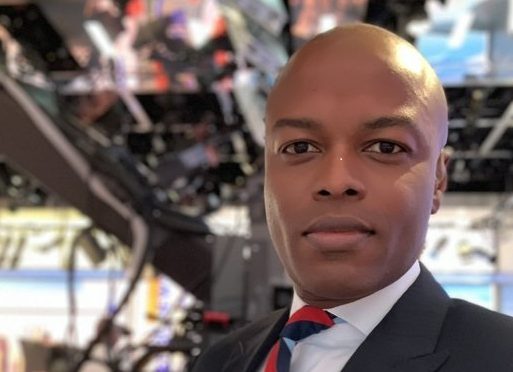To viewers at home, Kendis Gibson seemed to have it all. Off-camera, he felt like he didn’t.
Gibson was in 2018 the regular co-anchor of ABC News’ overnight program, “ABC News Now,” and working hard to climb the ladder, appearing 212 times on “Good Morning America” in his first two years at the Disney-backed outlet. Off screen, however, he was grappling with trauma — some generated by incidents from his childhood, and some the result of feeling that he was being marginalized as he tried to get his work in front of viewers and executives.
After trying to find another path at ABC News following several years at “ABC News Now,” and finding one wasn’t being provided to him, Gibson began to have intensifying thoughts of suicide, something that had plagued him at other times in his life. Five of his friends rushed to his New York City apartment, where an attempt to jump out the window of his high-rise Manhattan apartment was thwarted only because he had ingested alcohol and sleep medication that kept him from being able to coordinate the effort.
During a recent conversation, Gibson, whose career has taken him from CNN to ABC News to MSNBC to his current stint as a weekday anchor at Nexstar’s WPIX in New York, recalls an interview he once heard with longtime CNN anchor Bernard Shaw about achieving success in TV news. “It will cost you, no matter what,” he remembers, adding: “I wasn’t prepared for that.”
“Five Trips,” Gibson’s new book, which debuts Tuesday, is helping him to work it all out. The anchor details not only a troubled childhood that has continued to weigh on him, but a series of experiments he has undertaken with various drugs to help him gain control over his mental well-being. Over the course of 206 pages, Gibson tests MDMA in Hawaii and Arizona; LSD in Big Sur; psilocybin in Belize; and ayahuasca in Peru.
He has reasons to seek solace. The early parts of Gibson’s memoir detail a harrowing childhood in Belize, where he is sexually assaulted repeatedly as a child. He must also grapple with the mysterious death of a childhood friend, who was a first and newfound same-sex crush. As Gibson finds success in the TV-news business, he must confront continued feelings of depression, PTSD and suicidal ideation.
“To go back and relive all of it is emotional and cathartic at the same time,” says Gibson.
His recollections may also help many others in the TV-news ranks, where long hours, stressful deadlines and national exposure can play havoc with self-regard.
Gibson isn’t the only person who has suffered declines in mental well-being over the course of a career in the medium. Dan Harris, a former ABC News anchor who has since moved on to launch his own mental wellness company called “10% Happier,” told a oft-remembered story of having an on-air panic attack while filling in on “Good Morning America” in 2004. He subsequently discovered he had become depressed after a long stint covering wars in Afghanistan and Palestine, among other places, and had begun to self-medicate. He soon began to try mediation.
Gibson also has stories that will be of interest to people in the news business. He helped lead a group of journalists of color at ABC News that sought to make the unit’s hiring practices more inclusive. Yet as the effort continued, he found his appearances on major shows such as “GMA” becoming severely cut. After turning up on “GMA” frequently during his earlier years at ABC, Gibson found his appearances cut to a mere handful.
His behind-the-scenes look at the Disney-backed unit offers new detail to a difficult episode that came to light in 2020 when a senior executive responsible for talent development was found to have made racially insensitive comments over a long period of time. His experience there “contributed to the mental health decline,” he said.
As Gibson details in the book, some of his experiments helped him come to terms with things that weighed on him. After taking a psychedelic trip in Peru, he writes, “I felt connected with the universe. The weight I’d carried a lifetime, embarrassed by my impoverished childhood, had lifted. I realized through this journey that my escape from poverty was a badge of honor, and not something to be ashamed of.”
The anchor says he isn’t trying to encourage others to follow his regimen. “I’m not recommending people read this and say, ‘I want to do psychedelics.’ I’m just basically saying this was my journey,” Gibson says. But he hopes readers come away with a new appreciation of some of the pressures faced by TV-news personnel. “We are pretty much like anybody else, he says. “We are still fighting and struggling and wrestling with personalities and with stress and dealing with anxiety.”



